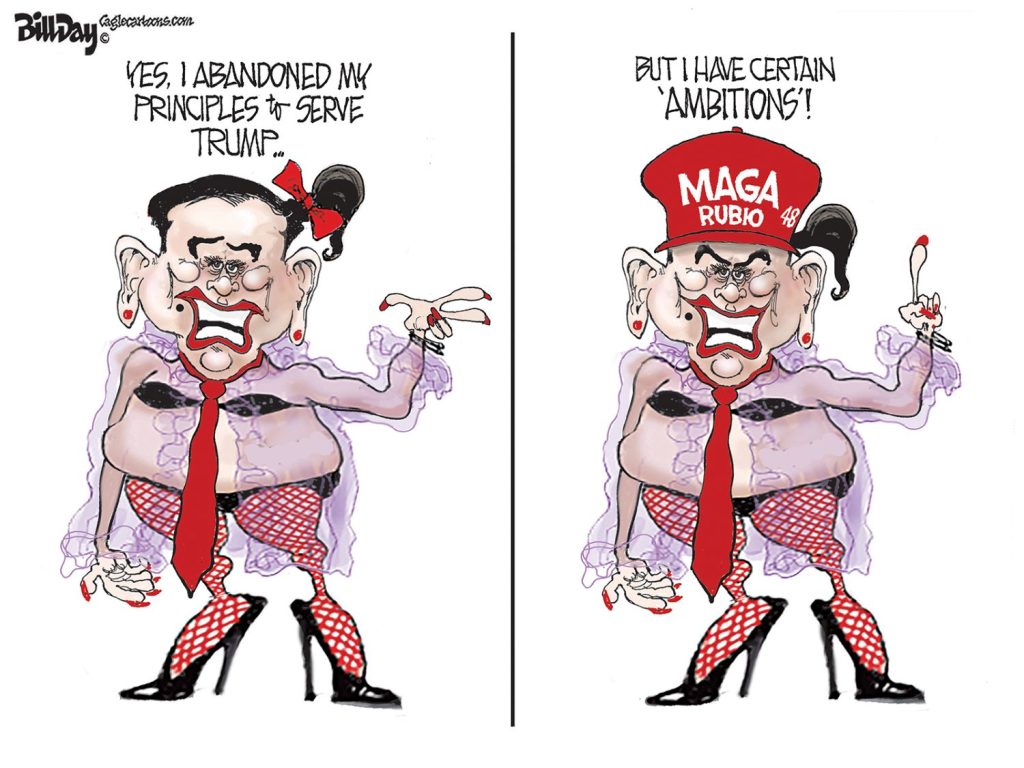Only one county in the United States gave away more tax money in the form of business incentives than Shelby County – $239.2 million between 2017-2022 – and that doesn’t include $105 million in PILOTs by City of Memphis.
Taken together, it means that over six years, Memphis and Shelby County Governments gave corporations and real estate developers $344 million in tax breaks.
Those are the conservative conclusions of the recent analysis by Good Jobs First, which promotes corporate and government accountability in economic development with a particular focus on the use of public subsidies.
According to its report, only Hudson County, New Jersey, in the shadow of New York City, gives more tax incentives at $309.1 million than Shelby County.
Shelby County gave out 50% more than Knox (Knoxville), Nashville/Davidson, and Hamilton County (Chattanooga) combined – more than four times more in tax abatements than Hamilton County (Chattanooga) and Nashville/Davidson and six times more than Knox County (Knoxville).
Hamilton County granted $60.1 million in PILOTs, Nashville/Davidson gave out $56.9 million in PILOTs, and Knox County $39.8 million in PILOTs. All three of them together still gave away $82.4 million less than Shelby County’s $239.2 million.
Memphis’s $104.9 million in tax abatements leads Chattanooga which is in second place at $82.9 million. The waived Memphis and Shelby County taxes equate to $435 per capita for Memphis taxpayers, who pay both.
Then There’s the Local Context
The report was about numbers and what’s missing is the local context relevant to tax abatement policies:
- The Shelby County tax abatements indicate that a conservative $80 million in taxes over six years were given to businesses and real estate developers that would otherwise have gone to schools.
- These generous tax breaks are given in a city and county with the highest poverty rates in Tennessee and among the highest for major cities and counties in the U.S. Shelby County’s poverty rate of 23.6% is twice Knox and Hamilton Counties and 63% higher than Nashville, all which give out substantially less in tax abatements.
- Memphis and Shelby County’s economic indicators have lagged behind peer cities and counties in the six years of the report.
- Every time one of the nine agencies with the power to waive taxes in our communities does so, it automatically waives Shelby County taxes. In many other places, cities take responsibility for tax abatements. In other words, if a city like Collierville wants to waive taxes, it should do it by giving away its own taxes rather than those paid by every taxpayer in Shelby County.
- Many counties have policies that remove school funding from tax breaks so education is not penalized and always held whole. After all, investment in schools is tantamount to investing in economic growth.
- Other communities have graduated PILOTs. They decrease by 10% over 10 years or they increase by 10% in the amount of taxes paid per year. Local governments here have never conducted an independent study of the impact of this kind of reform of PILOTs.
- Most remarkably of all, despite the need for a 49-cent tax increase in Memphis this year and with budget pressures consuming Shelby County Government, reform of the tax abatement program is never discussed in budget hearings. There are models from other communities that prove that tax breaks can be strategically and more carefully applied, and yet, those communities are still economically successful.
Here Are The Numbers
Ultimately, the question for Memphis and Shelby County remains how they can make tax abatements investments rather than the entitlements they have become.
Good Jobs First explains the source of the data: “Starting in fiscal year 2017, in a municipal finance landmark, the U.S. public required the ability to learn how much revenue local governments forego every year to economic development tax abatements. The new data is available thanks to Governmental Accounting Standards Board (GASB) Statement No. 77 on Tax Abatement Disclosures, an amendment to GASB’s Generally Accepted Accounting Principles, or GAAP.
“Statement 77 requires most jurisdictions to disclose the amount of revenue they forego every year to tax abatements. Tax abatements are reductions in local or state tax bills given to corporations or individuals in exchange for a community benefit such as job creation or capital investment. Abatements can reduce or even eliminate a tax obligation for periods of 10, 20, or 40 years, or even in perpetuity.”
The report reviewed the available reports while noting that “many jurisdictions are simply not complying with Statement 77. Yet even with uneven compliance, we see troubling high costs in some places and an overall acceleration of losses in many places.” One of those places would be Memphis which more than doubled the amount of taxes waived for businesses in the six years.
Table 4: Counties with Largest Tax Abatement Losses, 2017 – 2022
| County | State | 2017 | 2018 | 2019 | 2020 | 2021 | 2022 | Total |
| Hudson | NJ | $53.3
million |
$51.3
million |
$49.2
million |
$55.2
million |
$48.5
million |
$51.8
million |
$309.1
million |
| Shelby | TN | $42.5
million |
$42.1
million |
$42.6
million |
$37.2
million |
$37.3
million |
$37.5
million |
$239.2
million |
| Washington | OR | $40.1
million |
$43.8
million |
$30.5
million |
$30.9
million |
$38.9
million |
$45.1
million |
$229,2
million |
| Nassau | NY | $24.0
million |
$22.0
million |
$24.6
million |
$42.1
million |
$38.6
million |
$44.4
million |
$195.7
million |
| Hawai’i | HI | $32.2
million |
$30.0
million |
$31.3
million |
$29.9
million |
$30.7
million |
$31.2
million |
$185.2
million |
Tennessee
Tennessee’s school districts are all component units, and therefore do not issue their own financial reports.
| Jurisdiction Name | Jurisdiction Type | 2017 | 2018 | 2019 | 2020 | 2021 | 2022 | Total |
| Shelby County | County | $42,461,936 | $42,134,289 | $42,626,481 | $37,202,422 | $37,278,238 | $37,493,646 | $239,197,012 |
| Hamilton County | County | $6,354,254 | $11,434,312 | $10,804,148 | $10,997,663 | $10,859,725 | $10,142,939 | $60,593,041 |
| Rutherford County | County | N/D | N/D | N/D | N/D | N/D | N/D | – |
| Knox County | County | $4,116,976 | $5,586,103 | $5,907,808 | $6,857,479 | $8,160,570 | $9,146,395 | $39,775,331 |
| City of Nashville and Davidson County |
City/County |
$4,923,900 |
$6,605,724 |
$8,782,711 |
$9,743,729 |
$15,611,952 |
$11,257,641 |
$56,925,657 |
| City of Memphis | City | $11,665,000 | $16,743,000 | $17,531,000 | $16,909,000 | $18,776,000 | $23,316,000 | $104,940,000 |
| City of Chattanooga | City | $9,431,047 | $14,041,711 | $14,810,532 | $14,758,562 | $14,302,960 | $15,551,083 | $82,895,895 |
| City of Knoxville | City | $4,078,340 | $4,968,395 | $5,227,210 | $6,273,959 | $7,534,999 | $7,353,140 | $35,436,043 |
| City of Clarksville | City | $196,884 | $174,833 | $174,874 | $179,763 | $184,964 | $389,351 | $1,300,669 |
| City of Murfreesbor
o |
City | N/D | N/D | N/D | N/D | N/D | N/D | – |
| Tennessee | State | $145,552,000 | $136,091,000 | $190,667,000 | $224,140,000 | $214,713,000 | $177,974,000 | $1,089,137,000 |
| Total | Total | $228,780,337 | $237,779,367 | $296,531,764 | $327,062,577 | $327,422,408 | $292,624,195 | $1,710,200,648 |
***
Join me at the Smart City Memphis Facebook page and on Instagram where these blog posts are published along with occasional articles, reports, and commentaries that are relevant to Memphis.




